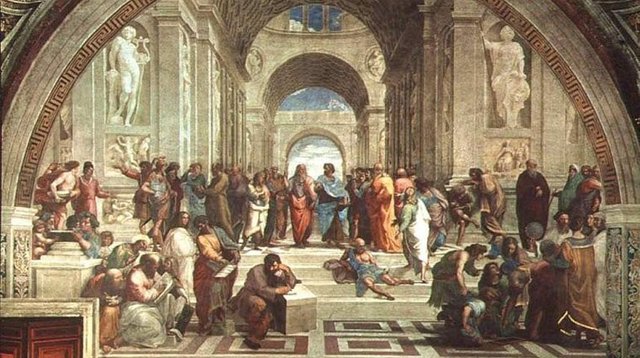Ancient philosophy. Life and creativity of Socrates. /part 3/
Teaching about knowledge: Socrates argues that nothing can be said of any subject if his concept is not known, his common, self-equal nature, and hence as the starting point of any knowledge the establishment of concepts. To test whether he possesses such knowledge, he examines his ideas, whether they meet this ideal of knowledge. However,he ends his self - test with the admission that he does not know anything, because the new idea of knowledge existed in it as a requirement without being realized in a scientific system.
But because he deeply believed in the possibility of knowledge and was convinced of his necessity, he came out of the consciousness of his ignorance to seek true knowledge. To this end, he turns to others who believe he has had knowledge to help them acquire knowledge. This search for knowledge takes place in a dialectical form. Socrates feels the others to check their knowledge. Because there is no real knowledge in them, as a result of the test, their ignorance is revealed and his request to learn it involuntarily becomes ironic. In this way, Socrates wanted to bring everyone to the knowledge that nothing knows what consciousness he possessed to remove the greatest obstacle to true knowledge. He then urged everyone, through serious reflection under his direction, to strive for the ideal of knowledge-forming a concept. Thus, the main subject of their research is the determination of the concepts achieved through a dialectical inductive path. Socratic induction does not come from its accurate, if possible full, observation, but from the ordinary experience of everyday life, from generally accepted positions.
Yet, by looking at every subject from all sides, and taking into account instances that are inconsistent with the definition, the human thought led to the formation of such concepts that would cover all the material and unite all the existing signs of the object. These views of knowledge have been of great importance for the further development of the theoretical philosophy, because they not only give the ideal, but also embrace the logic and the theory of knowledge. Ethics. The main subject of Socrates' research is human activity. Considering the disagreements of naturophilouss and the unsatisfactory results to which they come, he rejects naturophilosophical mood as hopeless, and only considers ethical research in the power of human cognitive ability and only of value to man. The guiding thought in its ethics is to reduce virtue to knowledge.
Socrates not only considers; that in order for a person to behave fairly, he must know what is fair, but also claims that the one who knows what is fair can not act unjustly. Since good serves good, but everyone desires own good, there is no man who does not want to do good. That is why Socrates believes that in order for men to become virtuous, they only need to explain to them what is good. Virtues not only arise from learning, but they themselves are knowledge, for example, a brave one is the one who knows how to deal with dangers, godly-who knows what is fair about the gods, just-who knows what fair to people.

And what is 'good'?
Posted using Partiko iOS
Socrates is satisfying with general reasoning about knowledge as a virtue, without giving a systematic account of this knowledge and without indicating a metaphysical and anthropological basis for it. It is difficult for him to determine what is good.
Indeed, and so it is for everyone. To which you can only conclude that we know nothing.
Right?
To listen to the audio version of this article click on the play image.

Brought to you by @tts. If you find it useful please consider upvoting this reply.